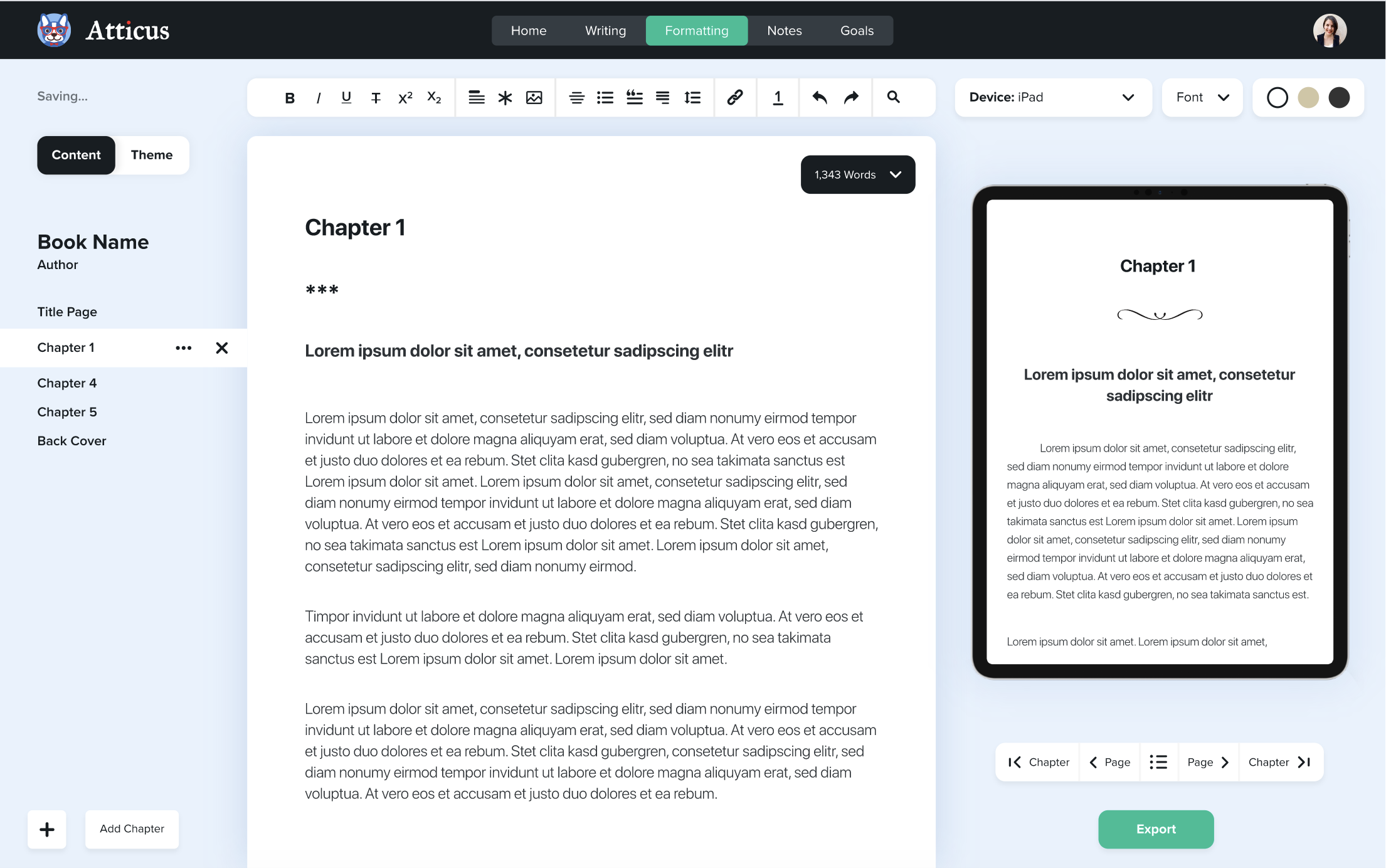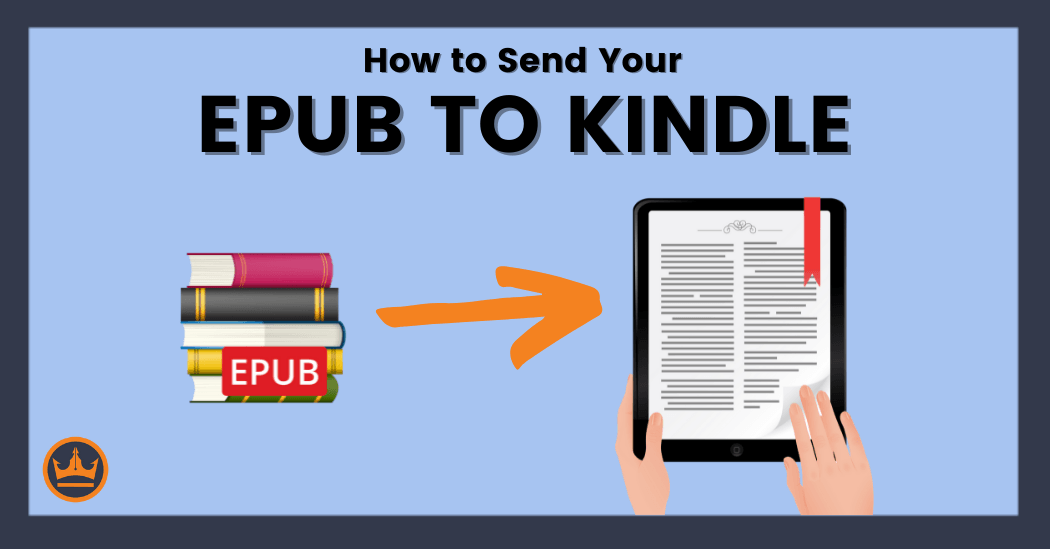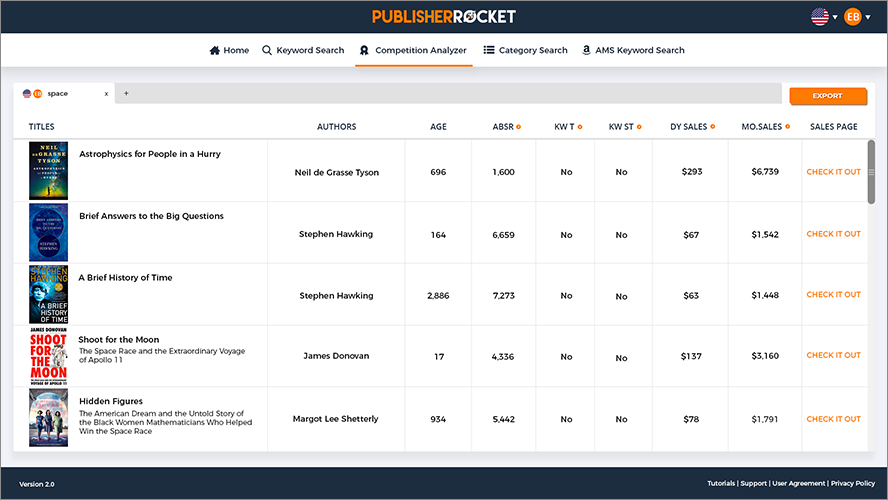Large print books, also known as large-print editions or large type books, are designed for those who have difficulty reading the regular sized font, and can be an additional source of income for authors who take the time to create them.
Creating a large print book costs you little apart from time (and even that can be minimized with a good formatting program like Atticus), and provides a service that is in high demand and low supply.
Authors who take advantage of these opportunities can easily find large print books to be a lucrative form of income to supplement what your book is already making.
There are many benefits of using large print books for readers as well: they make reading more enjoyable, they help promote literacy skills among children and adults alike, and even help improve comprehension due to less eye strain. In this article we will go over how to create a large type book, because there's more to it than just using a large font.
- What large print books are
- Why it's important to create large print books
- The organizational guidelines for large print books
- How to make large print books
- The best software for creating the large print format
Table of contents
What are Large Print Books?
What are large print books? Large print books are designed for those who have difficulty reading the regular sized font.
This often includes seniors, but easily works for others who are visually impaired as well, such as those with macular degeneration, cataracts, people who often read on buses or are otherwise frequently jostled while reading, etc.
Large Print vs. Regular Print
Not all large print documents are created equal. There are certain guidelines to follow in order to make them easily accessible for the visually impaired, which includes using a larger font size than standard editions or regular sized prints of books.
Generally speaking, most people with normal vision have no problem reading a 12pt font on their standard book; however when you increase the type size, it becomes easier to read regardless of your vision capability.
The minimum font size for a large print book is usually 18pt, but you can sometimes go higher or slightly lower, depending on the intricacies of your typeface and how many pages you have in your manuscript.
And this is just one of the differences between large and regular print. Other factors to consider are the font type, the line spacing, the paragraph spacing, and the alignment.
Are Large Print Books Just for Seniors?
No, not at all. Large print books can be easily used by anyone who has low vision or is otherwise visually impaired in some way.
Here's a list of groups that may benefit from large print books:
- The Visually Impaired: obviously, the visually impaired make up the majority of those people that we will be talking about here. This can include the elderly, but can also include anyone with low vision of any kind.
- The Dyslexic: many large print books are actually marketed towards children and young adults with dyslexia or other learning disabilities that make it difficult to read the standard sized text.
- The Tired: sometimes people just like to read when they're tired. It can be a great way to wind down at the end of the day, but a small font size can get in the way of this. Large font sizes create less eye strain.
- The Bouncing: readers who spend a lot of time on buses, trains, or in the back of a car, are another group that might appreciate large fonts. The larger typeface is easier to see when in motion.
- The Impatient: have you ever flown through a book because there were fewer words on each page, and it felt like you were making a lot of progress? Impatient readers need that sense of progression, and large fonts can help with this.
All in all, there are a variety of audiences for large print books, so you definitely don't want to ignore these demographics.
Note: this generally applies only to people who still like to read print books. It does not apply to those who use Kindle eReaders, because the font size can be increased on those devices
Why are Large Type Books Important?
Why are large type books important? The most obvious reason is for those who have vision impairment, such as AMD or any of the reasons we outlined above. But there are more reasons than this.
Large print books are actually in high demand, and not just for senior readers. Joanna Penn of The Creative Penn even found that her large print edition made up 36% of the income for one of her books while the “regular” paperback made up only 12%.

That's a big difference!
So not only is producing a large print book in the best interest of the visually impaired, but it's another way to diversify your income and increase your chances of selling books.
However, the biggest misconception about large print books is that all you have to do is increase the font size and you're done, but there is actually a lot more to it than that.
In the next section, I will get into exactly what these requirements are, and why they are important.
Formatting Has Never Been Easier
Write and format professional books with ease. Never before has creating formatted books been easier.
Click here to see it in actionWhat Are the Requirements for Large Print Books?
According to the American Council for the Blind, there are four features that are particularly important if you want to have good readability for large print books. These four features are:
- Font size
- Font style
- Line spacing
- Contrast
That said, even this does not cover all of the guidelines from the American Council of the Blind, the ADA, or other similar organizations worldwide.
Note: for authors, there are no legal requirements for large print books, meaning that no one can legally sue you for not covering all the requirements. That said, the closer you can get to full compliance, the better the experience for the end-user.
Additionally, most book formatting tools out there do not actually comply with all of the requirements. Most check the boxes on one or two and leave it at that. So it's important to know what the requirements are, and which software will help you get there (hint: Atticus does everything you need).
Here is a quick list of everything you need to be compliant with the guidelines from most organizations like the American Council of the Blind:
- Use 18 point font
- Use a sans serif font
- Stick to a line height of 1.5 or higher
- Space your paragraphs instead of indenting them
- Use ragged right text (i.e. not justified)
- Titles and headings should also be a larger font and aligned to the left
- Bulleted items should be double-spaced
- Use only black colored text
- Use bold to emphasize text instead of italics
- Select a larger trim size
You can learn more about these guidelines from various organizations such as these:
- The American Council of the Blind
- UK Association for Accessible Formats (UKAAF)
- Royal National Institute of Blind People (RNIB)
- American Foundation for the Blind
- http://www.euroblind.org/
How to Create Large Print Paperback Books with Atticus
For this example we will be using Atticus, because it does everything you need to perfectly comply with the correct guidelines, and it does so with just a few clicks.
Note: There are other programs that will increase your font size, such as Vellum, but there are more large print requirements (as seen above) that Vellum doesn't follow. Atticus makes sure it complies with all of the guidelines.
So let's dive into how to make those changes.
Step 1: Select Your Trim Size

The first and most important step is to choose your trim size. You can do this by going to the theme settings for your book, and if you scroll down you will see a section called “Print Settings”.
There you will see an option called “Large Print Options”. All you have to do is select one of those trim sizes, and all of the other settings will automatically be applied.
Literally, that's all you have to do to get the right font size, the right trim size, the right font style, and the right paragraph spacing, among other things.
There is just one more consideration to keep in mind, which leads us to step two.
Step 2: Customize Your Theme
It is important to note that the pre-generated themes do not change font styles or sizes for the chapter headings or the header and footer.
So if you want to have large print titles for the chapter headings, you’ll want to create a custom theme, as seen in this screenshot:

It is recommended to use left aligned titles or chapter numbers and sans serif fonts are preferred, since these are part of the above guidelines.
Step 3: Other Considerations
In steps one and two above, you can have everything you need for large print in just a few clicks. But beyond the basic formatting of your book, there are a few other considerations that you should keep in mind when creating your large type book.
- Your Book Cover: even if your trim size is the same as your regular paperback size, you will need to resize your book cover, because it will have a bigger spine. If your trim size is different from your regular paperback size, you will need even further modifications.
- Your Page Count: understand that your page count is going to be much higher with a large print book than with a regular print book. You'll need to check to make sure that your large print book does not exceed the maximum size for a KDP (or IngramSpark) print book.
- Mark as Large Print: one good idea is to mark your book as a large print book. One great suggestion that comes from Joanna Penn is to create a kind of sticker that is part of the cover design.
- Cream Paper: cream paper is easier on the eyes and reduces paper glare, making it a better paper type for those with low vision.
- Consider Hardcover: now the Amazon prints hardcovers through KDP, you might want to consider making your large print book a hardcover. These last longer, are more likely to be picked up by libraries, and increase its sturdiness for the reader.
As you can see, there is a lot more to creating a good large type book than just increasing the font size. There are a lot of plates that you have to juggle.
When you can get everything right, as mentioned above, large print books can be a great additional source of income.
Final Thoughts
Whether you're looking to create a book for seniors, the visually impaired, or you just want to create a larger print version of your regular paperback, large print books are important and worth looking at.
Thankfully, Atticus has you covered, as the best formatting tool for indie authors who want to create large print versions of their books. You can check it out here.
So what are your plans? Are you going to create a large print book? Or if you have already done so, what tips would you give to other authors? Share this post on social media and include your thoughts!









